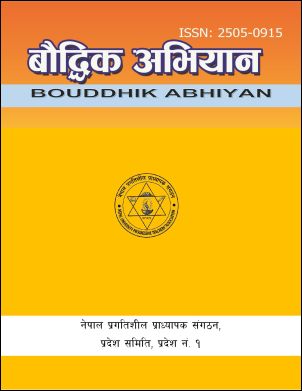School Level Teacher Management System in Nepal: Prospects and Challenges
DOI:
https://doi.org/10.3126/bdkan.v7i1.47562Keywords:
ad-hoc teacher, decentralization, grassroots model, power-devolution, professionalismAbstract
This paper highlights teacher management in terms of prospects and challenges in the Nepalese school system. The paper argues that the existing teacher management model adopted by the government is both an administrative model and a grassroots model. The paper aims to explore the existing teacher management system of the government and its prospects and challenges from the quality perspective. To achieve a critical reflection on the teacher management system, the paper utilizes qualitative content analysis as a method of generating empirical evidence. The Teacher Service Commission (TSC) functions as a centralized agency for selecting and recommending teachers for permanent appointment, and the SMC at the local level is working with a grassroots model of teacher management as a decentralized agency. As a result, the quality of school education is deteriorating because of this contradictory policy provision for teacher management. The devolution of power to the local level to hire teachers with different names opened a gate for under-qualified and less competent teachers to enter school education through an indirect path. The paper explores that the contradictory policy provision, unclear roles, and responsibilities between local and centers, extreme politicization, teachers’ hierarchies, and categories all are the challenges for and problems with teacher management in school.




